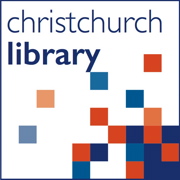
You want to use podcasts in your classroom but you're not quite sure how? Awesome. Let the child lead. (This is one of the underlying philosophies in Montessori education.) OK, but seriously:
Don't worry if you're not familiar with the technical aspects of recording and editing audio. A), this changes all the time anyway, and B), the students either know how to do this part or can partner up with peers who can teach them. What you can do, though, is teach the interviewing, listening, editing, writing, and narrative skills. While a lot of this translates over from the world of good old fashioned writing, there are so many more resources available now devoted specifically to teaching podcast creation. Three great places to start are:

1. Teaching podcasting: an NPR curriculum guide for educators. Tons of links, recources, lesson plans, sample podcast episodes, etc. The whole kit and kaboodle, right here. Seriously: a) you should be using podcasting in your class, and b) this is how to get started. Update: the Youth Radio link at the bottom of this section, "How to Make a Podcast," is also an exceptional intro to podcast production, and is written more toward a student audience.

2. Transom.org: A showcase and workshop for new public radio. Another fantastic resource, but less focused on classroom instruction. Good starting places are their tabs for Techniques and Ideas. (They also have a great Tools tab if you want to get into the weeds with hardware and what-not, but for classroom-level work, the audio recording capabilities of everybody's smartphone is just fine.) Transom.org has great resources on the sorts of things you wouldn't think of, but that are key to creating podcasts of higher quality. It's a great place to send students who think they already know everything about podcasting. (As one example of something I learned on their site, when interviewing someone you shouldn't audibly comment as your subject speaks with the usual vocal assurances we offer like "umm-hmm" and "wow" and "yeah" and "OK,...". The reason is that this breaks the magic your podcast listener might otherwise hear as they imagine, in the cocoon of audio, that your interview subject is speaking directly to them. Hearing your constant little vocal assurances reminds your listeners that they are not listening to your subject directly, but merely listening in on someone else's conversation. Much less transporting!)
Finally, the CCS logo headphones above link to a page I put together a few years ago to share podcast recommendations with students. The homepage of the library website also includes an automatically-updated RSS feed (that's what RSS feeds do...) of specific episodes from several great podcasts. If you have podcast recommendations beyond these, please let your friendly CCS librarian know and I'll happily add them to the lists.

3. Youth Radio: YR Media is a national network of young journalists and artists. Their site is a great place to expose students to the power of student-created and -produced audio content; they feature stories created by young people focused on a range of issues. They also have a great DIY page with topics ranging from actual technical advice to broader things like "how to be an ethical journalist" and "how to find sources to interview."
and here are two specifically very useful pages:
This last link is amazingly useful. EVERYTHING is here, including lists of high-interest quality podcasts to help students understand the potential of this medium.
Test link:








 Northwestern University's Knight Lab
Northwestern University's Knight Lab
















